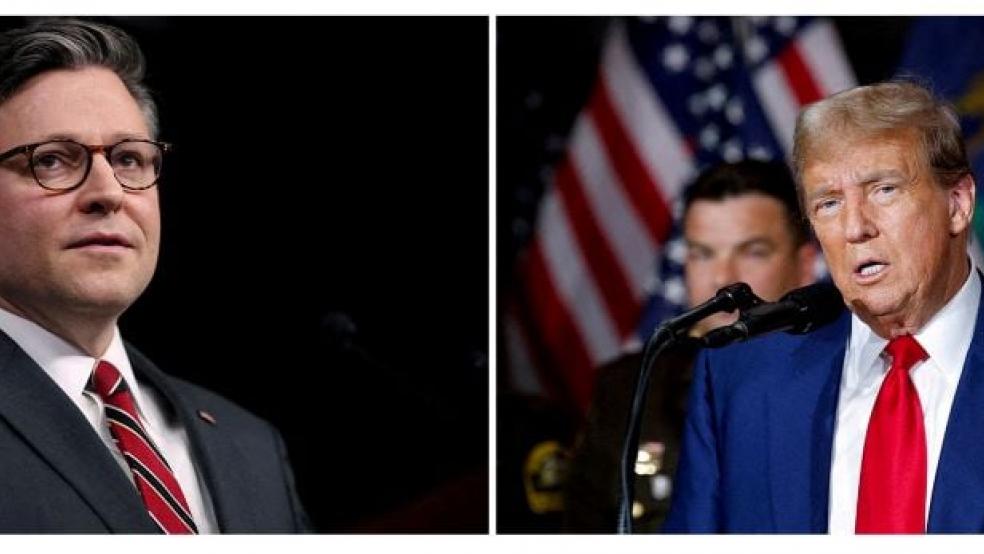Republicans in the House met behind closed doors Tuesday to lay out their priorities for the new Congress that starts in January, and their to-do list looks pretty familiar to anyone who’s been observing GOP politics over the last few years: build the border wall and crack down on immigration, lock in the 2017 tax cuts, drill more oil, slash programs passed by Democrats and reduce the size of the “administrative state.”
Speaker Mike Johnson told reporters after the meeting that recent discussions with President-elect Donald Trump, Vice President-elect JD Vance and their senior policy advisers have made it clear that there is complete agreement between House leadership and the incoming administration. “There is no daylight between their agenda and what they envision and what we envision for the House,” he said.
Johnson expects to move quickly to kick off a “breakneck 119th Congress” starting on January 3. “The agenda will be fast paced,” he said. “The first 100 days will be very full because we have a lot to fix. And as I've said many times, I believe President Trump could be the most consequential president of the modern era because we have to fix everything.”
Majority Leader Steve Scalise told reporters that lawmakers have been discussing the parliamentary procedure known as budget reconciliation, which Republicans expect to use to pass major changes in tax and spending policies without Democratic input or support. “I assembled committee chairs last week to go through what we will be doing in budget reconciliation starting in January,” he said. Scalise added that Republican lawmakers are already working with Trump so they’re ready to go on “day one.”
Trump’s tariff proposals were reportedly discussed at the meeting, as well, with one member asking if projected revenues from the tariffs could be used to offset the cost of the reconciliation package. “We are going to be having a lot of discussions with President Trump about the framework,” Scalise told Politico. “Obviously, keeping the current tax rates where they are — not having any tax increases — is the main objective. There were a lot of other items that President Trump put on the table during the campaign that we want to work with him on. So we've got to look at the numbers, make sure everything adds up, because budget reconciliation does give you some limitations.”
Congressional rules limit what items can be included in a reconciliation bill that can be passed by the Senate with a simple majority that cannot be filibustered rather than the usual 60-vote supermajority. Reconciliation bills can be used for legislation that affects spending, revenues, or the debt limit, and the Byrd Rule, named for former Sen. Robert Byrd, prohibits such bills from increasing the deficit beyond the budget window of 10 years or changing Social Security.
Budget
House GOP Lays Out Priorities for Next Congress

Reuters



